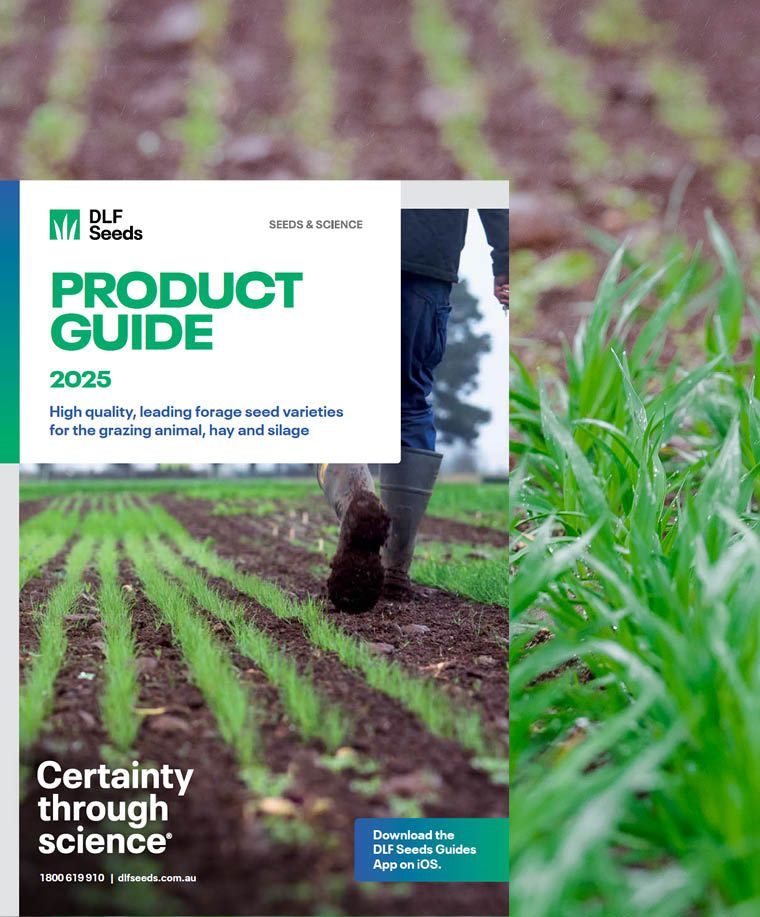Get in Touch
Contact Us
National team

Find Your Local Sales Agronomist
Edison is an Australian bred, subterranean clover (Trifolium subterraneum), bred to be an improvement on Leura, Denmark and Rosabrook. Edison’s vigorous winter and early spring growth, makes it an ideal candidate for hay and silage production. And, with a leafy growth pattern and the ability to rapidly recover from grazing, Edison provides valuable feed for both sheep and cattle grazing systems.
As a fast establishing, high production clover, it effectively competes with other species within the pasture mix to produce valuable feed throughout winter and late spring (when other species may become dormant).
With a similar flowering date to Leura, Edison features superior field performance and low formononetin levels, making it safe for grazing animals by reducing the risk of infertility problems.
Edison thrives particularly well in the southern states of Australia where high winter/spring rainfall is followed by a summer dry. Well adapted to moderately acidic, well-drained soils, Edison can be sown into permanent or semi permanent pastures for improved legume density and feed diversity.
Sowing rate (mixed): 6-10kg/ha
Sowing rate (sole): 15-20kg/ha
*Edison has demonstrated similar “days to first flower” as Leura based on an early May sowing in Perth, Western Australia
Moderate resistance to RLEM at cotyleton stage (higher than Leura and many other late flowering sub clovers on the market).
Resistance to clover scorch (Kabatiella caulivora) and powdery mildew (Oidium sp.).

Edison has been extensively tested in Australia and across trials, it produced higher autumn/winter and winter/spring dry matter; particularly in the third year of regeneration. This is important for the longevity of the sub clover in pasture swards.
In Blayney, NSW (Figure 1), Edison consistently performed well across all seasons holding the highest average yield across four out of five seasons.


In Ballarat, Victoria (Figure 2), Edison recorded the highest accumulated dry matter over three cuts in the third year. It outperformed other late flowering subterranean clovers, which demonstrated its exceptional winter and early spring production.

Edison is suited for grazing, but it’s crucial to manage newly sown pastures carefully to avoid overgrazing, which can cause plants to be pulled out. Light grazing during the establishment phase helps with weed control and promotes dense, low growing vegetation. After establishment, heavier grazing up to the flowering stage enhances seed production. However, once flowering starts, stocking rates should be decreased to maximise seed set and future regeneration.
A good seed set is vital for the regeneration and persistence of the sub clover in subsequent years. Hay making in the first year should also be avoided to aid with seed set and regeneration in following years.
Sow 6-10 kg of seed per hectare in a pasture mix or blend. It is recommended to sow after the autumn break into a finely prepared seed bed. Use seed coated with Superstrike®, which includes rhizobia, insecticide, fungicide and lime to enhance germination.
Direct drilling Edison into the top 1–1.5 cm of a fine seedbed will typically give the best results. Press wheels or light rolling can aid in establishment in most cases but avoid these if the soil is prone to hard setting.
Consult your local retailer, Agronomist or DLF Seeds Sales Agronomist for optimal results.
Joint venture: Franklin was developed by the Annual Legume Breeding Australia (ALBA) joint venture between The University of Western Australia and DLF Seeds with prior contributions by the Department of Primary Industries and Regional Development (Western Australia).
Minimum 650mm rainfall per annum unless irrigated

